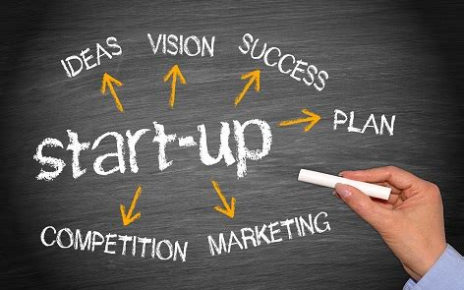Optimize your daily agenda– Do you think that social networks consume a lot of time and that you no longer reach all your tasks? Do you wonder how you are going to be in social networks if you spend the day putting out fires? Do you feel that you have worked hard but your day has been unproductive?
Maybe your problem is not the new tasks of social media, but a daily agenda that is not optimized. Therefore, before addressing the issue of time in social networks. I will indicate three pillars for effective time management and 10 tips that you can implement immediately.
If you subscribe to the blog now, you will receive in your email a calendar template organized by Flexible Thematic Blocks that will help you in the task of planning your agenda.
Efficiency daily agenda: Give priority to what matters

As Stephen Covey says, the fundamental thing in an effective administration of time is to “put first things first”. This pillar is as obvious as it is obvious. People usually have a sense of guilt about 40% of the time consumed during the day on average. And we tend to think that if we had a second chance we would do different things. However, the paradox is that, the next day, we fall into the same mistakes.
The following tips will help you change this:
Plan based on priorities
Many times we spend a good part of the day attending to the demands of others that are not really important, postponing tasks that, despite being important. We do not feel like doing, living on the basis of unforeseen events or “putting out fires”. This usually happens because we have not defined what the priority is really, that is, what is important. What helps us to achieve our objectives.
Therefore, having a daily, weekly, monthly planning based on priorities will help you focus your time on what you consider important and postpone, delegate. Or even waive indefinitely those tasks that do not provide value to your agenda. Some tips that can help you plan effectively are:
- Plan in writing (daily and weekly schedule, at least)
- Define clearly what your objectives are, and distribute the time according to the prioritization of your objectives
- Be realistic in defining the times assigned
- Think that balance is a fundamental element of your planning by objectives , therefore keep in mind all your areas of life, both personal and professional
- Consider the difficulties you can encounter to complete your planning and think about the solutions in advance
Be flexible and analyze continuously
The goal of planning is to get to your results, not to tie yourself to a personal agenda.
That is why your planning must be flexible, always in continuous review. Evaluate with certain periodicity if you’re planning adjusts to your reality, as well as if it is helping you or not to reach your goals
Rational efficiency: look for concentration at all costs
The second pillar is to get concentrated work. Surely you are aware that those days in which you have “got” fully in your daily tasks, in which nothing has left you out of them, are those in which you yield the most. How can you achieve this effectively?
Avoid multitasking
When you give your brain the opportunity to focus on a single task, it is appreciated by increasing the quality and speed of performance. Therefore, this must be a basic strategic objective in your daily agenda. Since not working on several projects at the same time as not having too many windows on the computer open, until not working with the email enabled continuously. Some of the following tips will also help you.
Group tasks
It is very useful to group in the same work block similar tasks that do not require that you lower your concentration level to “start” with a new topic or type of work. For example, if you have to make 5 reports of related topics for your clients, it will be more productive to do them in the same task block. If you do them in a row, as you progress, you will become faster and faster, and your brain will thank you with a higher level of concentration.
Do not leave a task until it’s finished
When we start a task our level of concentration -and therefore of performance- is increasing, reaching its peak between 15 and 45 minutes after having started the task, depending on the person. If you fraction too much, you will be losing a lot of productivity, because you will be continuously “starting” (it may cost you to do it 300% – 500% more time). Keep in mind, too, that the level of concentration suffers a fall after 60-90 minutes of having started. To avoid this, take small rest periods of between 5 and 10 minutes.
Avoid interruptions and plan contingencies
Interruptions are everything that cuts your work flow and concentration. Avoid the tasks that interrupt you. Many are avoidable if they are plane.
Plan a time a day without a telephone or check emails only at certain times of the day, or even ask your employees, colleagues, subordinates, etc. Do not interrupt you at certain times.
Unforeseen events are important tasks that you must do and do not count on.
The best thing is to plan on your schedule a time for unforeseen events and from this time you will be taking portions as needed.
- Emotional efficiency Work motivation and emotional management
- The third pillar is related to the management of emotions. Above all we talk about motivation, but also emotional states that help or hurt our personal performance.
These four key guidelines will continue to help you plan your goals.
In long projects see step by step
A long-term project or task can be discouraging because, although the satisfaction of finishing it will be great, being “so far away”, it is difficult to maintain perspective and motivation.
Divide the project into intermediate parts and propose a work plan and coherent deadlines for each stage of the journey. It is one of the most useful ways to maintain motivation in long projects.
Permeate
Complementary to the previous advice, we all deserve to enjoy the reward of our effort, even if it is only to stop and give ourselves recognition for our perseverance.
Reward yourself for the achievements made, whether large or small, be absolute completion or the successful achievement of small stages. The prize you choose, but you give it because it reinforces your self-esteem.
Have a sense of urgency with your own terms
It is normal for you to be more focused and more productive when deadlines urge. However, this type of stress is not beneficial in the medium and long term.
Plan your tasks ahead of time and impose deadlines prior to the final date. You will achieve a point of motivation and positive stress that will help you to perform at the highest level without producing personal wear. Moreover, the motivation for confidence in your professional abilities and your determination to achieve personal challenges increases every day.
Assume the reality
On many occasions, the environment that surrounds you has too much influence on your agenda and you reach the conclusion that it is not possible to “fight against the current”. We have to be realists:
Admit that there are times when circumstances are outside your framework of sufficiency (that which depends on you) and readapt your management of the agenda to this reality. This way you will not be frustrated or demotivated so quickly by something that was not in your hands.
- If you want to be able to effectively manage time on social networks, take these tips seriously.




